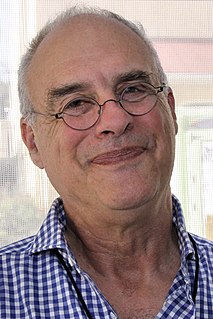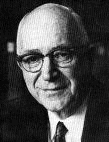A Quote by Mark Bittman
The USDA is not our ally here. We have to take matters into our own hands, not only by advocating for a better diet for everyone - and that's the hard part - but by improving our own. And that happens to be quite easy. Less meat, less junk, more plants.
Related Quotes
The lore of our fathers is a fabric of sentences. In our hands it develops and changes, through more or less arbitrary and deliberate revisions and additions of our own, more or less directly occasioned by the continuing stimulation of our sense organs. It is a pale gray lore, black with fact and white with convention. But I have found no substantial reasons for concluding that there are any quite black threads in it, or any white ones.
If we could only make our hands move as actively as our tongues, what wonders we could accomplish! Almost everyone loves to hear his own voice. It is so easy, too! Yet if we could say less and do more for each other's good, not alone would every home be happier, but communities would be enriched thereby. Instead of criticism by speech, to show someone a better way to do a thing would be of much greater value.
Everyone has noticed how hard it is to turn our thoughts to God when everything is going well with us... While what we call 'our own life' remains agreeable, we will not surrender it to Him. What, then, can God do in our interests but make 'our own life' less agreeable to us, and take away the plausible sources of false happiness?
If people can be educated to see the lowly side of their own natures, it may be hoped that they will also learn to understand and to love their fellow men better. A little less hypocrisy and a little more tolerance towards oneself can only have good results in respect for our neighbor; for we are all too prone to transfer to our fellows the injustice and violence we inflict upon our own natures.
The issue of the pension gap has got to become visible and important to millions of people before Washington will respond seriously. Right now, everyone thinks it's his or her own problem and that individuals have to do better and save more. Of course, that is true. We all have to save more and take responsibility for our own retirement. But we have a huge social and economic problem on our hands.
Perhaps that is our doom, our human curse, to never really know one another. We erect edifices in our minds about the flimsy framework of word and deed, mere totems of the true person, who, like the gods to whom the temples were built, remains hidden. We understand our own construct; we know our own theory; we love our own fabrication. Still . . . does the artifice of our affection make our love any less real?
It is only when we want to take our lives out of the Father’s hands and have them under our own control that we find ourselves gripped with anxiety. The secret of freedom from anxiety is freedom from ourselves and abandonment of our own plans. But that spirit emerges in our lives only when our minds are filled with the knowledge that our Father can be trusted implicitly to supply everything we need.
What does labor want? We want more schoolhouses and less jails; more books and less arsenals; more learning and less vice; more leisure and less greed; more justice and less revenge; in fact, more of the opportunities to cultivate our better natures, to make manhood more noble, womanhood more beautiful, and childhood more happy and bright.



































